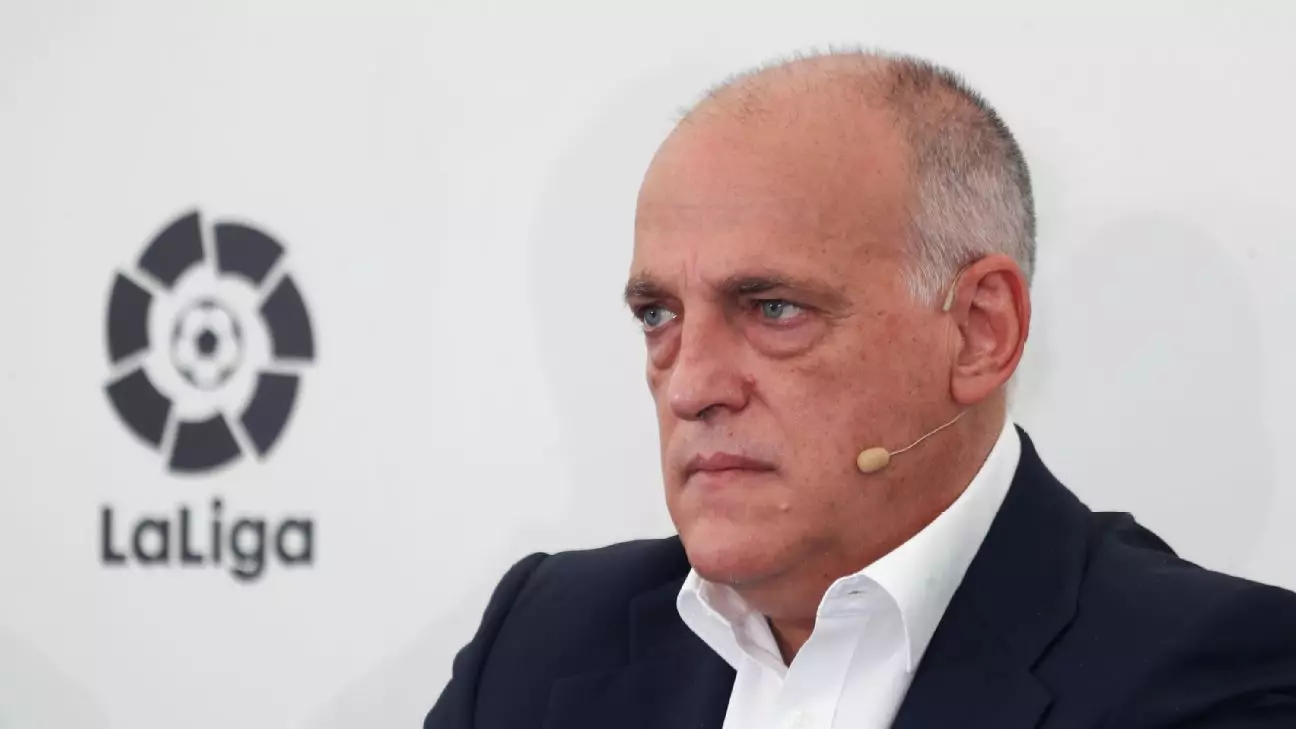Racism in football, particularly in Spain, is an entrenched issue that continues to echo through stadiums and confront players. Recently, LaLiga president Javier Tebas emphasized the need for harsher penalties against those who engage in racially abusive behavior towards players. His remarks follow a notable court ruling that imposed a 12-month suspended sentence on a Mallorca supporter for racially targeting Real Madrid’s Vinícius Júnior and Villarreal’s Samuel Chukwueze during a match earlier this year. This case is not isolated; rather, it reflects a growing recognition of the damaging impact of racism in football, signaling a potential turning point in how such incidents are handled legally and socially.
Tebas’ declaration that prison sentences should be pursued for fans openly engaging in racial abuse sets a significant precedent in addressing this problem. His commitment to see racial offenses met with severe consequences indicates a shift towards accountability within sporting culture. “We will continue until the end; if we have to put in jail those that shout or sing about racism, we will be there,” he stated. This level of urgency from the league’s administration illustrates a more proactive approach, highlighting the past inadequacies in handling racism and the need for systemic changes within Spanish football.
Footballers’ Experiences Highlight the Urgency of Change
Players such as Christantus Uche have brought attention to the real and immediate impacts of racial abuse, recounting personal experiences of discrimination from fans. Uche, who recently began his journey in LaLiga, recorded instances of racism as distressing and disheartening. Tebas encouraged players like Uche to report such incidents promptly to ensure that the league can take necessary actions against offenders. This dialogue begins to bridge the gap between players’ experiences and administrative actions, fostering an environment where discrimination is identified and dealt with decisively.
Community Involvement: The Shift in Fan Behavior
Tebas also highlighted the positive role of spectators who confront racists in stadiums, signifying a cultural shift within fan behavior. He remarked on how this grassroots involvement represents a fundamental change in how racism is perceived among audiences. Previously, silence might have accompanied incidents of abuse; now, fans are taking a stand, vocalizing their intolerance for racist actions. This transformation is crucial not only for protecting players like Vinícius but also for fostering an inclusive atmosphere in football.
Despite the heavy backdrop of racism, there remains a glimmer of hope for LaLiga, reinforced by Tebas’ belief in the league’s talent pool. He noted that Vinícius is among the favorites for the prestigious Ballon d’Or, a reflection of both his talent and the broader capabilities of LaLiga players. This belief in the potential of Spanish football to produce world-class talent serves as a counter-narrative to the racist challenges faced, suggesting a future where excellence thrives alongside a culture of respect and dignity.
The movement against racism in LaLiga is gaining traction, underpinned by firm legal principles and enhanced community involvement. As the league commits to a zero-tolerance approach and shines a spotlight on the experiences of its players, there is hope for a more inclusive future for football in Spain.

